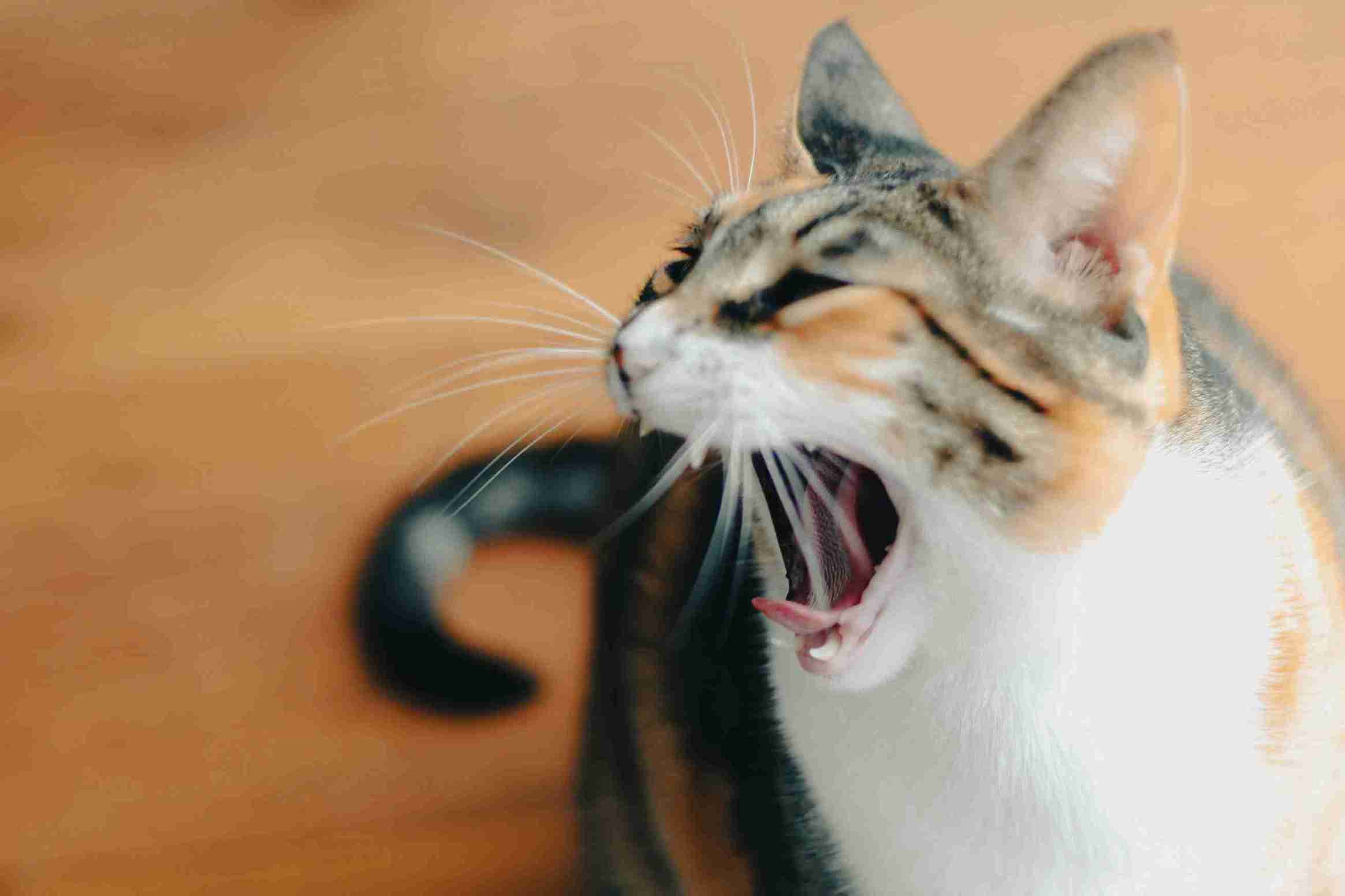Why Indoor Cats and Rabies Shots Matter
Many cat owners think indoor cats are safe from rabies. They believe these cats don’t need vaccinations. Indoor cats have a lower risk than outdoor cats, but it’s a myth that they don’t need rabies shots at all. Viruses don’t always stick to the rules. Even indoor cats can get rabies from surprising situations.
Indoor cats are family. Keeping them healthy is as important as your own safety. Rabies is a fatal virus that affects the nervous system, and once symptoms appear, there’s no cure. Even if your cat never goes outside, a rabies vaccination helps keep your furry friend safe from a serious threat.
This guide covers what you need to know about rabies vaccines for indoor cats. It explains why they might still be important, how often to get them, and tips to keep your indoor cat safe.
Understanding Rabies and How It Affects Cats
Rabies is a virus that attacks the nervous system of mammals, including cats. It spreads mostly through the bite of infected animals, including wild bats, raccoons, and stray cats or dogs. Indoor cats don’t often meet wildlife, but they can still get the virus. For example, a bat might accidentally enter the house, or a visitor could bring in an infected pet.
Symptoms of rabies in cats can be scary and unpredictable. Early signs can show changes in behaviour. Your calm indoor cat might suddenly become aggressive or overly shy. Other symptoms include drooling, difficulty swallowing, staggering, or paralysis. Unfortunately, once these signs appear, the disease progresses rapidly and is almost always fatal.
Even though indoor cats face lower exposure, the risk isn’t zero. That’s why vets often suggest a rabies vaccination. It protects your cat and gives you peace of mind. Vaccinating your indoor cat keeps them safe from rare rabies exposure. It also helps ensure your home stays a safe place for everyone.
Why Indoor Cats Might Still Need Rabies Shots
Many cat owners think that if their cat stays indoors, rabies shots aren’t needed. It’s a common misconception, but the truth is, indoor cats can still face unexpected risks. Even the most cautious pet can have accidental exposure. Bats can get into homes through tiny openings. Also, pets that play with wildlife might accidentally bring the virus inside.
Rabies is highly contagious and fatal. That’s why vets often recommend vaccinating indoor cats, even if the chances seem slim. Think of it as a precautionary measure—it’s better to prevent than to deal with the consequences later.
Scenarios where indoor cats might be at risk include:
- Open windows or doors – curious cats can slip outside briefly.
- Visitors with pets – pets that aren’t fully vaccinated can be carriers.
- Wild animals entering the home – bats, raccoons, or even stray cats can sneak in.
- Accidental outdoor exposure – a cat darting out when the door opens.
By vaccinating your indoor cat, you’re creating a safety net. Even if the risk looks small, the benefits greatly outweigh the rare side effects of vaccination.

Rabies Vaccination Schedule for Indoor Cats
Another misconception is that vaccines are a one-time thing for indoor cats. Rabies shots must follow a set schedule to provide lasting protection. Here’s a simple breakdown you can follow:
- Kittens typically get their first rabies shot when they are about 12 weeks old. This kick-starts their immunity.
- Booster shots – depending on your vet’s advice and local laws, boosters are typically given every 1 to 3 years. Some regions mandate annual boosters, while others allow a three-year interval.
- Regular vet checkups are important. Indoor cats should see the vet once a year. This helps monitor their health and confirm vaccination records.
Sticking to the vaccination schedule keeps your indoor cat safe from rabies for life, even if there’s accidental exposure. It’s not just about legal compliance—this is about your cat’s safety and your peace of mind.
Tips for vaccination:
- Always consult your vet for the schedule tailored to your cat’s age, health, and local regulations.
- Keep a vaccination record handy; it’s required in many places.
- Discuss any concerns about side effects with your vet—they are rare and usually mild.
Benefits of Rabies Shots for Indoor Cats
Some cat owners think, “My indoor cat never goes outside, so rabies shots aren’t worth it.” This myth is common, but in reality, vaccinating indoor cats provides many benefits beyond just stopping rabies. Vaccination gives you peace of mind, even if your cat stays indoors. It keeps your whole household safe.
Here are the key benefits of giving rabies shots to indoor cats:
- Protection from a fatal disease: Rabies is almost always fatal once symptoms appear. A simple vaccine can prevent this deadly virus entirely.
- Safety for family: Rabies can spread to people, especially kids, near pets. Vaccinated cats reduce this risk.
- Legal compliance: Many regions require cats to be vaccinated against rabies, even indoor ones. Keeping your cat up to date avoids legal issues.
- Peace of mind: When you’re sure your cat is safe from rare dangers—such as bats or stray animals—you feel more at ease about their safety.
Vaccination is a proactive approach to feline health. It’s an easy way to protect your cat, your family, and your home environment from a preventable disease.
Risks and Considerations of Rabies Vaccination
While rabies vaccines are generally safe, some cat owners hesitate, fearing side effects. The truth is that serious reactions are very rare, and most indoor cats tolerate the vaccine well.
Here’s what you should know:
- Mild side effects: Some cats might feel soreness where they got the injection. They may also be a bit tired or have a mild fever for one to two days.
- Severe reactions (rare): Allergic reactions are uncommon but can occur. Signs include vomiting, swelling, or difficulty breathing. Contact your vet immediately if this happens.
- Vet consultation is important. Always talk to your vet about your cat’s health history and any concerns before vaccination. Cats with pre-existing health conditions may need a tailored approach.
- Peaceful vaccination tips: To reduce stress, schedule shots during quiet times. Use a familiar carrier and offer gentle reassurance during the visit.
The benefits far outweigh the minimal risks. Rabies vaccination keeps your indoor cat healthy and your home safe. It’s safe and essential.
Indoor Cat Care Tips Beyond Vaccination
Some cat owners think vaccinating their indoor cat keeps them safe. However, that’s only part of the story. Rabies shots are important, but indoor cats also need full care to keep them healthy and happy. Vaccination is just one piece of the puzzle.
Here are some practical tips for taking care of your indoor cat:
- Regular Vet Checkups: Even indoor cats benefit from yearly veterinary visits. Vets can find hidden health problems, update vaccinations, and give tips on nutrition and wellness.
- Balanced Diet: Feed your cat high-quality food appropriate for their age and health needs. Proper nutrition strengthens immunity and supports long-term health.
- **Clean Environment:** Keep litter boxes tidy. Also, make sure your home is safe from hazards that could expose wildlife to danger.
- Safe Play and Exercise: Give your indoor cat toys, climbing spots, and scratching posts. These keep them active and mentally engaged.
- Prevent Accidental Outdoor Exposure: Check doors and windows. Also, think about using screens or barriers to stop escapes. Even brief outdoor exposure could expose your cat to disease.
Vaccinations and indoor cat care routines together give your cat the best chance for a long, healthy life.
Legal Requirements and Local Laws
Many indoor cat owners believe a myth: rabies vaccines aren’t needed if their cats stay indoors. In reality, many regions mandate rabies vaccinations for all cats, regardless of whether they live indoors or outdoors. Ignoring these laws can lead to fines or legal complications.
Here’s what you should know about the legal side:
- Local rules differ: Some states or countries need annual rabies shots, but others permit a three-year schedule. Check your local animal control or public health office.
- Documentation is important: Keep a record of your cat’s rabies vaccinations. This is often needed for boarding, travel, or even during a vet visit.
- Compliance Keeps Everyone Safe: Legal rules help lower rabies risk for both people and animals. Following them keeps both your cat and community safe.
- Vet Guidance: Your vet can explain the legal requirements in your area. They can also help make sure your indoor cat is fully compliant.
Even if your cat stays indoors, getting the required vaccinations is responsible and protective. It’s a simple step that safeguards your cat, your family, and your community.
Expert Tips: Making Vaccination Stress-Free for Indoor Cats
Many cat owners think, “My indoor cat will hate the vet, so maybe I should skip the rabies shot.” While it’s true that some cats don’t enjoy vet visits, skipping vaccination isn’t the solution. The good news is that there are simple ways to make the experience less stressful for your furry friend.
Here are expert tips for stress-free vaccination:
- Choose a Quiet Time: Book your appointment when the clinic is less busy, steering clear of peak hours.
- Familiar Carrier: Place your cat’s favorite blanket or toy inside the carrier. Let them explore it at home before the visit to reduce anxiety.
- Gentle Handling: Speak softly, pet your cat, and stay calm yourself. Cats often pick up on your energy.
- Reward and Praise: After the shot, offer treats, playtime, or cuddles. Positive reinforcement helps them associate vet visits with good experiences.
- Consult Your Vet: Talk to your vet about anti-anxiety methods. If needed, they can suggest safe, mild sedatives for very anxious cats.
Using these tips can help make vaccinating indoor cats easier and safer. This way, they get the protection they need without extra stress.
Common Myths About Rabies Shots for Indoor Cats
A lot of indoor cat owners believe myths that can put their pets at risk. Let’s bust the most common ones:
- Myth 1: Indoor cats don’t need rabies shots. Reality: Indoor cats can still meet wildlife, pets from visitors, or escape by accident. Vaccination is a simple precaution.
- Myth 2: Rabies vaccines are risky for cats. Reality: Serious reactions are extremely rare. Most cats tolerate the vaccine well, with only mild, temporary side effects.
- Myth 3: Rabies shots are unnecessary if my cat never goes outside. Reality: Local laws often require vaccination regardless of lifestyle. Plus, prevention is always safer than dealing with the fatal consequences of rabies.
- Myth 4: One shot is enough for life. Reality: Rabies vaccines require boosters to maintain immunity. Follow your vet’s recommended schedule to keep your cat protected.
- Myth 5: Vaccines don’t matter for older indoor cats. Reality: Cats of any age benefit from protection. Even seniors can safely receive vaccines unless there are specific health concerns.
Debunking these myths helps pet owners make smart choices about vaccinating indoor cats. This protects both their pets and their families.
Conclusion: Keeping Your Indoor Cat Safe
Many indoor cat owners think, “Since my cat never goes outside, I don’t need to worry about rabies.” This is a common misconception that can leave your cat—and even your family—vulnerable. Indoor cats are safer than outdoor ones, but rabies is still a threat. Vaccination is the easiest way to protect against it.
To keep your indoor cat safe:
- Follow the vaccination schedule. Make sure your cat gets the initial rabies shots and timely boosters as your vet recommends.
- **Keep regular vet checkups:** Visit the vet once or twice a year. This helps catch health issues early and keeps vaccinations up to date.
- Practice Comprehensive Indoor Care:
- Offer the right nutrition.
- Keep litter areas clean.
- Ensure safe playtime.
- Groom regularly for overall wellness.
- Watch for accidental exposure: Even indoor cats might meet wildlife or other pets, so it’s important to stay alert.
- Follow local laws. Make sure your cat’s rabies vaccinations meet regional rules. This helps keep your pet and community safe.
Vaccination, good care, and preventive steps help your indoor cat live a long, healthy, and stress-free life. Remember, prevention is always better than dealing with a fatal disease like rabies.
Final Tip: Protecting your indoor cat with rabies shots isn’t just a health choice—it’s a responsibility. Keep your cat safe, your family protected, and your home worry-free. Stay up to date with vaccinations and care practices.


Leave a Reply